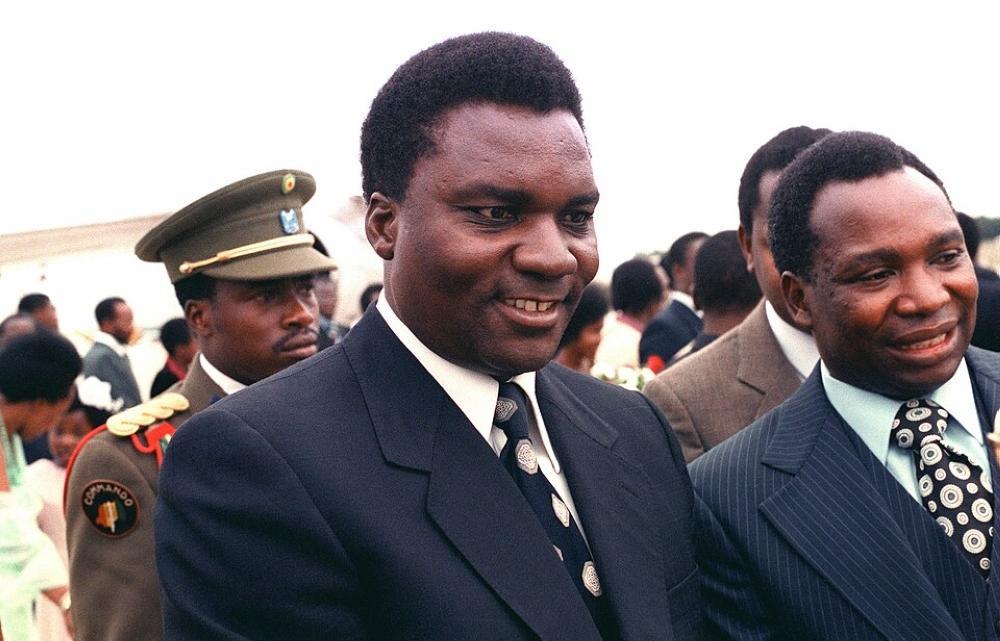Africa-Press – Rwanda. In the last pieces of this serialised narrative, one realised that during the rule of President Juvenal Habyarimana, in the early 1990s, there was a human rights crisis in Rwanda. An international commission, through a committee of inquiry, confirmed it. The state and even Habyariamana himself used it as a political stratagem. As we move forward in the series, more will be explained.
The commission implicated the former Rwandan Armed Forces (FAR). It enumerated violations that were committed by the government soldiers. The latter were implicated in the violation of human rights not only in the context of the war with the Rwanda Patriotic Front/Army (RPF/RPA) but also outside the scope of military operations. They were involved in arbitrary arrests. Military camps became places of detention. About 150 prisoners who were captured at the beginning of the war were executed. There were cases of rape carried out by soldiers.
The report incited a lot of reactions and emotions within the international community, notably in Belgium, France and USA. Donors threatened to suspend their development aid as they had been requested by the investigators of the International Commission. “The development policies of some Western countries must change radically. It is high time that friendship ends here so that free democracy is genuinely supported by governments of the West.”
In reaction to the report, President Habyarimana blamed the commission for paying attention to just a single problem of ethnicity and ignored the logic of partisan confrontation that was prevailing in the country. He said that all political parties were involved. The President felt that the conclusions of the report were “rushed” and attributed them to “biased testimonies”. The government issued a declaration that highlighted the limitations of the final report of the inquiry into the violation of human rights. The declaration exonerated President Habyarimana and his allies from all involvement in the violation of human rights.
RPF congratulated the international community for having put to light the misdeeds that were committed by the armed forces, MRND, CDR militias as well as the death squads. This was on top of paralysing the judicial system. In its criticism against RPF, the commission said that it had no liberty to work and express itself in the zone controlled by RPF (its representatives and a cameraman were present).
The RPF responded that: “the commission did not express the desire to talk to the displaced persons or the prisoners of war in camera”. The International Committee of the Red Cross did it and expressed its satisfaction. Members of the commission did not want to spend a night in the RPF zone and hence, it dedicated little time to interviews.
According to the International Commission, the crisis and insecurity were mainly attributable to high-ranking authorities of the State who were involved in the violence that shook the country. Various means were used by those high-ranking officials. These included speeches inciting people to commit violent acts and instilling hatred, especially against the Tutsi. The inactivity of the judiciary, absence of sanctions and impunity of murders, the creation and encouragement of militia were all forbidden by the law.
The crisis of 8th-9th February 1993 and its consequences
After six months of relative calm between the belligerents, RPF decided to violate the ceasefire, which had been in force since July 1992. RPA attacked several FAR positions located in Ruhengeri, Byumba. The big offensive brought RPA close to the doorsteps of the capital city.
Several factors explain this sudden breakthrough as well as the losses inflicted to FAR. The most important factor was that RPA took advantage of 6 months of cessation of hostilities to reorganise, train and improve its military and political strategies. The period was also used to gauge the forces and weaknesses of the enemy. At the moment of that attack, RPA was a well-organised, restructured, trained and well-politicised army.
For More News And Analysis About Rwanda Follow Africa-Press






